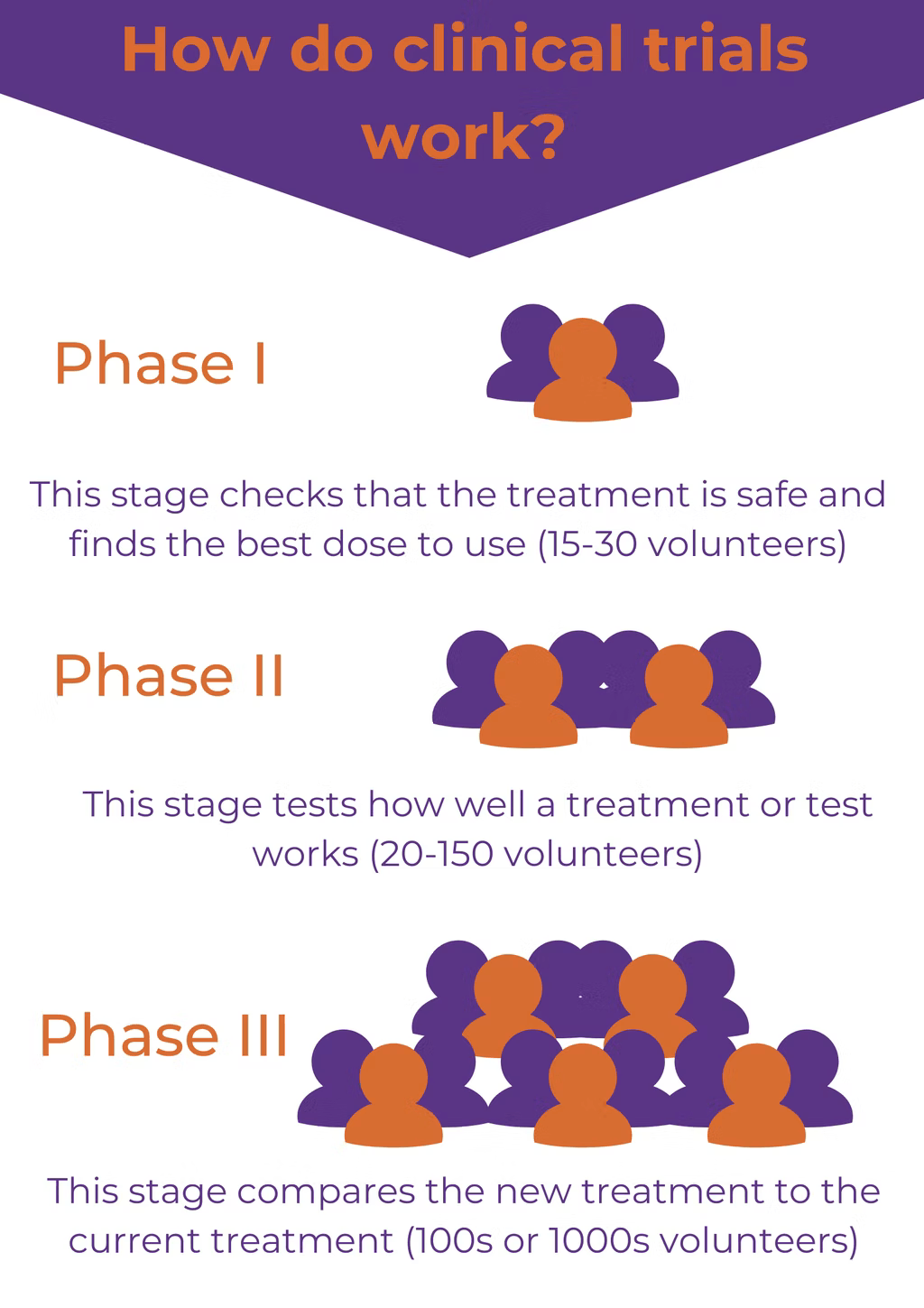Ignore small matters and direct effort towards important projects
He maurea kia whiria!
Clinical trials can be the best way to access the latest advancements in treatment whilst also being under increased monitoring of your care. They are often free, and travel and accommodation costs (if needed) are provided.
If you would like to understand more about how clinical trials work, how they are funded and how you might be able to access one, click on the links below.
How do we improve outcomes of gut cancers?
Clinical research and trials are fundamental to the future of cancer treatment. They are the final link in the chain of medical research, advancing discoveries made in laboratories into treatments that improve the quality of life for patients.
Clinical trials are not about labs or test tubes; they are real life studies involving patients, and they often produce major advances. They are the best way to define exactly which medications, surgical techniques and radiation treatments work best to help patients.
Most of the time, clinical trials compare a new treatment or procedure against the standard therapy. Trials are broken down into three phases which relate to different steps in treatment testing.
Generally, the funding pool for research in New Zealand is quite small, but for clinical trials in particular it is very difficult for New Zealand's brightest minds to source the necessary funding. As a result, New Zealanders miss out on access to the latest treatment options.
With your support, the Gut Cancer Foundation can help give New Zealanders access to international clinical trials by directly funding the cost of setting the trial up and patient participation.

Clinical trials are expensive, but are critical to ensure New Zealander’s are getting the best treatment possible. Funds are often raised so that new medicines can be developed and tested. To give you an idea of how funding for clinical trials is spent, we’ve created the visual below. You can donate to our research fund here.

Treatment CostsCosts over and above normal treatment costs that would otherwise be funded by the hospital such as extra scans, blood tests, and procedures

On-Site CostsThe salaries for study nurses and coordinators working closely with the principle investigator in the participating hospitals

Off-Site LogisticsThis includes quality assurance procedure set up, checking ethics approval, registering patients, collection, collation and review of incoming data, and follow-up of patients
Participation in clinical trials is always voluntary and dependent on the patient meeting certain criteria. If you’re interested in joining a trial, your first contact is normally your doctor or specialist. For more general information on entering clinical trials please click here.
For information on trials coming up, underway, or previous trials, see our page here and also the Cancer Trials NZ page here.
Additional Resources
the Cancer Society New Zealand has also developed a useful booklet with information for patients considering taking part in clinical trials: Cancer Clinical Trials: A guide for people considering taking part in a clinical trial
the Australasian Gastro-Intestinal Trials Group (AGITG) also has some great information about clinical trials underway in Australia and New Zealand. AGITG are a group of clinical and research specialists who undertake research and clinical trials to help advance the treatments for gut cancers. Click here to learn more.












